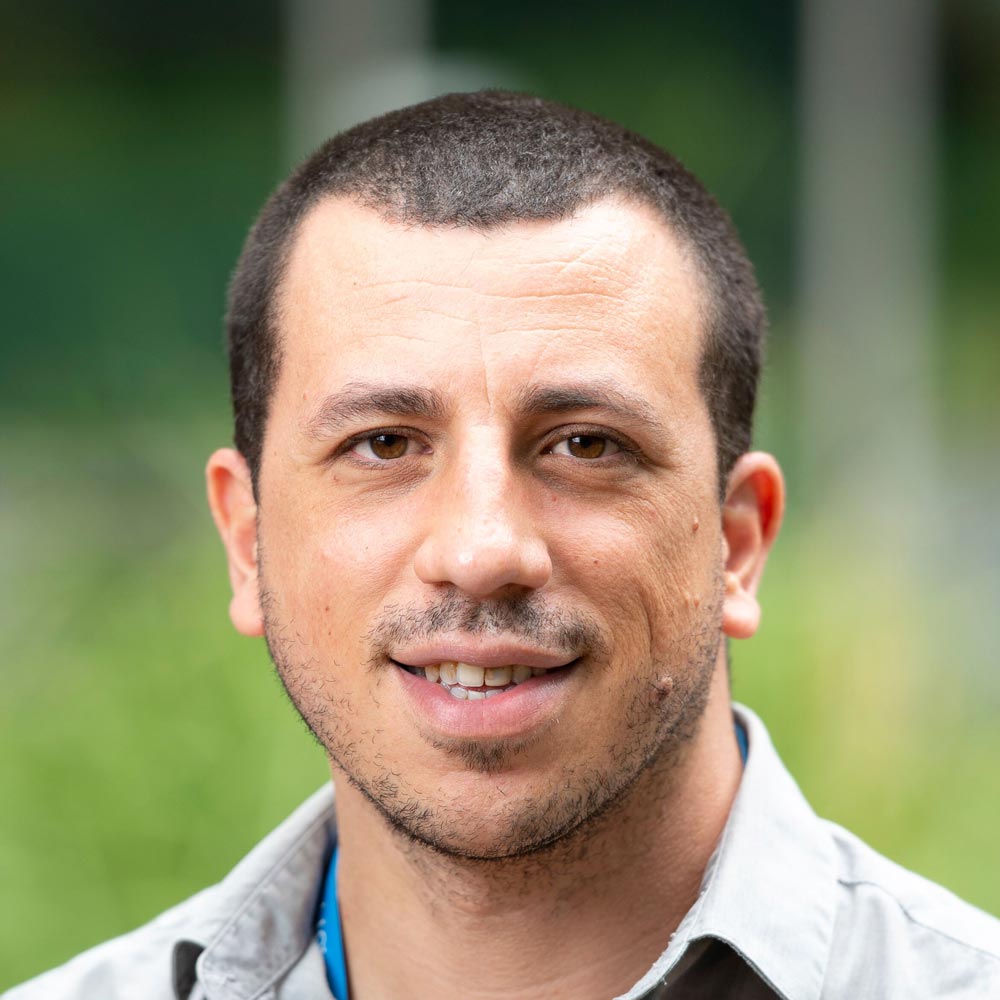Outcomes of 2021 Grant Round
PCFA's strategic research goal is to fund research that creates and promotes the uptake of knowledge that will improve the lives of Australian men with prostate cancer, their partners, families and carers.
The 2021 funding round called for applications from early career and mid-career researchers under the Priority Research Impact Award - Future Leaders (PIRA-FL) Scheme. This round focused on supporting our key and emerging talent via salaried awards to promote prostate cancer research pathways which harness the clinical and psychosocial needs and interests of consumers and the broader community.
Applications were welcome from Prostate Cancer Researchers in:
- Basic Science
- Survivorship/Psychosocial/Health Services and implementation research
- Clinical Research including Nursing
These grants will receive funding and commence work in 2022.
Priority Impact Research Award Scheme Grant Recipients

Dr Pierre-Antoine Dugué – Monash University
Prostate cancer subtyping and prediction of outcomes using genome-wide tumour DNA methylation data
Dr Dugué leads the Precision Medicine Molecular Epidemiology team in the School of Clinical Sciences at Monash University. This community-funded PCFA grant will enable Dr Dugué to continue his vital work on projects to better understand how tumour DNA can be used to predict how different prostate cancers will grow, allowing clinicians to develop more targeted treatments for the disease.
Dr Dugué’s work focuses on DNA methylation, one of the most promising areas of epigenetics in the field of prostate cancer research. While research into genetics involves heritable changes in gene activity or function caused by altered DNA sequencing, epigenetics involves the examination of heritable changes in gene activity or function that are not associated with changes to the DNA sequence itself.
Research into epigenetics plays a key role in understanding altered gene expression in different cells and tissues in the body, including prostate cancer tumours. The work of Dr Dugué’s team investigating genome-wide prostate cancer tumour methylation data is therefore vital to clinical decision making, and can help specialists to improve the accuracy of their clinical prognosis and the effectiveness of treatment pathways and precision care for the individual patient.
This fellowship builds on a large Australian epidemiological and clinical prostate cancer research resource that includes prostate tumours, which can make an important, internationally competitive research contribution for translation into clinical practice.
By capturing and subtyping epigenetic information on a large scale, Dr Dugué and his team can help to improve predictions of prostate cancer recurrence and survival, contributing to national efforts to lengthen survival time and prevent mortality.

Dr Chui Yan (Shanice) Mah – The University of Adelaide
Precision medicine approaches for targeting fatty acid oxidation in prostate cancer
Dr Mah’s project aims to identify novel strategies to improve outcomes for men with advanced prostate cancer. Despite recent progress in the clinical management of advanced disease, therapy resistance remains unavoidable and men with aggressive forms of deadly prostate cancer do not have any curative options, yet. Prostate cancer progression is associated with alterations in metabolic pathways, many of which are regulated by the androgen receptor, known to be the key driver of prostate cancer.
This project will help to develop novel and safe therapeutic strategies to delay progression to more aggressive disease by targeting key metabolic enzymes. Although there are a range of agents that treat metabolic diseases, very few agents have been investigated clinically for cancer management. Major challenges include building our knowledge of toxicity associated with targeting metabolic pathways, metabolic heterogeneity within and between patients, and the lack of preclinical models that can effectively predict clinical efficacy and biomarkers to guide treatment decisions.
This project will investigate these critical issues by employing three innovative strategies: (1) use of patient-derived explants and xenograft models that recapitulate clinical tumour heterogeneity and microenvironment to enable testing of drug candidates; (2) drug repurposing to ensure rapid and safe clinical translation; and (3) development of a circulating metabolic biomarker assay to select the ‘right treatment at the right time’ for each patient.

Dr Katie Owen – Peter MacCallum Cancer Centre
Development of preclinical models of advanced prostate cancer for radiotherapy and tumour-immune targeting
Dr Owen is a previous recipient of a PCFA Young Investigator Grant and has been recognised nationally and internationally for her research quality, scientific innovation, and leadership potential in the field of prostate cancer research.
This project will involve the collection of prostate tumours which have metastasized to the bone, matched with blood samples from consenting patients, to create an urgently needed platform to categorise and profile bone-metastatic tissues.
The project continues Dr Owen’s pioneering research into advanced prostate cancer, which has identified that an immune signaling pathway, normally intact in less aggressive prostate cancer cells, is suppressed when cancer cells move to bone.
Loss of this pathway makes the tumour cells invisible, allowing evasion of immune detection and subsequent growth. This project will leverage these pathway changes to identify men most at-risk of bone metastasis and explore how blocking this pathway loss in tumour cells can be used to prevent prostate cancer from spreading to the bone.
Dr Owen has assembled a strong, multidisciplinary team for the project. Together they will develop organoid models of metastasis to drive preclinical drug discovery.
The findings could help to test and activate critical immune signaling pathways and uncover new strategies that are likely to enhance prostate cancer cell visibility in sites such as bone, which could have major implications for prostate cancer treatment and management, to improve overall survival.

Mr Oliver Schumacher – Edith Cowan University
Exercise medicine for men with prostate cancer during radiotherapy
A rising star in the field of exercise oncology, Oliver Schumacher’s latest project will seek to discover more about the role of exercise in helping to reduce the risk of prostate cancer recurrence and improve survival, in addition to developing greater knowledge about whether exercise can influence a patient’s response to cancer treatment itself.
His research will focus on identifying which prostate cancer symptoms can be managed by exercise, and then translating the findings into clinical and community practice. The project will evaluate the effect of a single session of around 10 to 15 minutes of moderate to vigorous intensity step exercise on tumour blood flow, as a potential means to improve prostate cancer tumour oxygen levels in men scheduled for radiotherapy using dynamic contrast-enhanced magnetic resonance imaging.
The project builds on Schumacher’s prior work, developing greater knowledge of the role oxygen plays in the effectiveness of radiotherapy. If exercise can be harnessed to help overcome oxygen deprivation in the prostate tumours of study participants, the clinical outcomes of radiotherapy may be enhanced.
The men who enrol in the study will also be offered an aerobic exercise and resistance training program for the duration of their radiotherapy, allowing Schumacher to investigate the impacts of the exercise program on improving and/or maintaining physical function, as well as monitoring the side-effects commonly associated with radiotherapy treatment.
Participants will undergo the exercise sessions immediately before radiotherapy fractions, with the findings expected to be translated rapidly into practice.

A/Prof Haitham Tuffaha – The University of Queensland
The Value of Genetic Testing For Prostate Cancer
Associate Professor Tuffaha’s project will co-develop and evaluate prostate cancer genetic testing and counselling strategies to help provide the urgently needed evidence about the value for money of genetic testing in prostate cancer. The findings from the project will inform policy and reimbursement decisions towards the subsidisation of testing and the listing of targeted drugs on the Pharmaceutical Benefits Scheme.
The implementation of these strategies could result in a paradigm shift towards personalisation and precision in the management of prostate cancer in Australia.
The change in current practice could include early cancer screening of men who test positive for a mutation, and the use of targeted therapies to improve treatment outcomes and reduce unwanted adverse events in men with advanced disease.
The project will result in significant research outputs including publications in leading journals and presentations in national and international conferences.
A/Prof Tuffaha’s work will help to inform national and international guidelines for prostate cancer screening, early detection and clinical management to harness the benefits of personalised and precision medicine in prostate cancer care.

